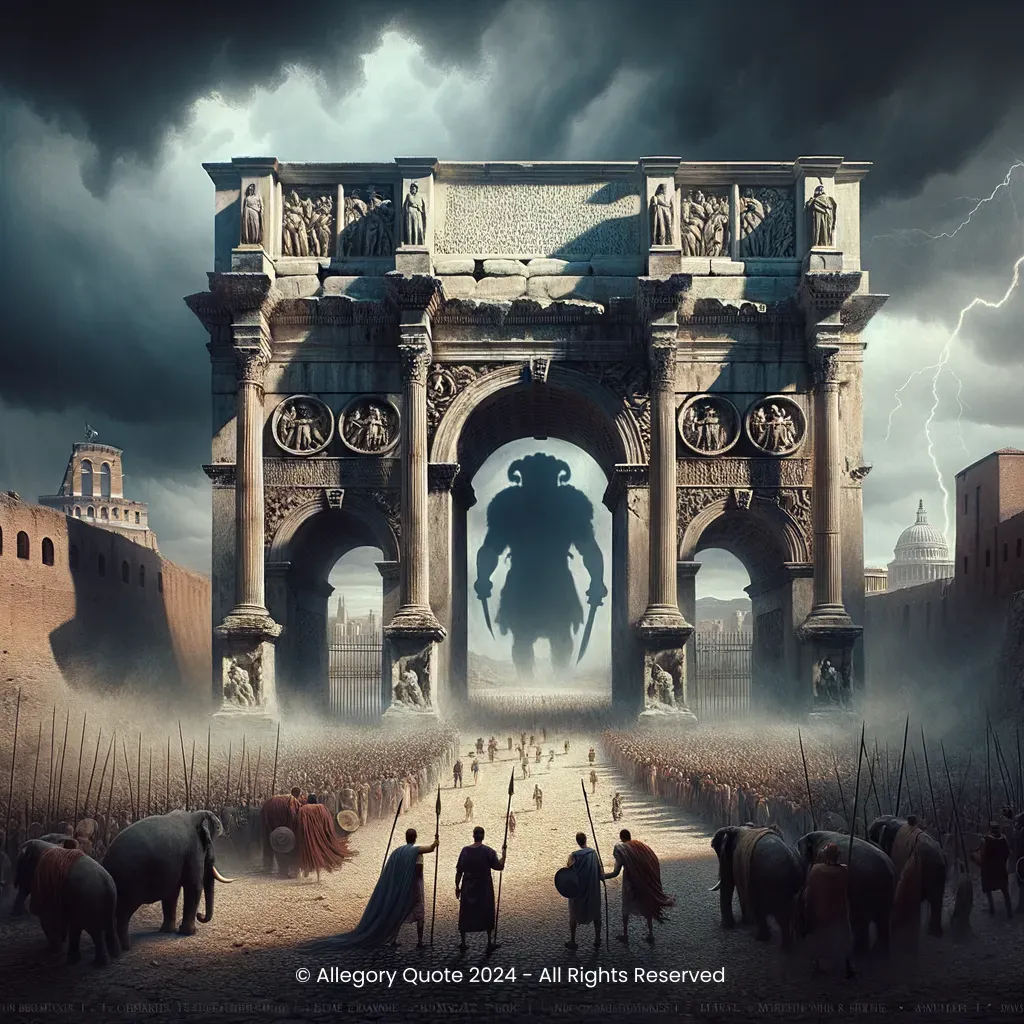Hannibal ante portas

0
0
0
0
- Meaning
- The phrase "Hannibal ante portas" is a stark, evocative warning of an impending, vast threat. Historically, it conveyed the dread Rome felt as Hannibal's forces, regarded as nearly invincible, approached the city. This saying has transcended its historical context, now symbolizing any imminent danger or crisis that feels almost unavoidable. It's an alert to prepare for a forthcoming challenge.
- Allegory
- The image includes several key elements: - The grand Roman city gates represent the strength and resilience of what needs to be defended. - The shadow of Hannibal and his elephants casts a looming presence, symbolizing direct and sizable threat. - The stormy skies with lightning signify the chaos and unpredictability of the approaching danger. - Concerned Roman citizens in the foreground illustrate the human element of fear and readiness. These elements combined convey the essence of the warning in "Hannibal ante portas," emphasizing preparedness and vigilance in the face of imminent threats. This artistic representation aims to evoke a sense of urgency and reflection on the importance of readiness and proactive measures.
- Applicability
- In contemporary contexts, "Hannibal ante portas" can serve as a metaphorical reminder to stay vigilant against looming threats—whether in business competition, political challenges, or personal crises. It encourages preparation and awareness, emphasizing the need to acknowledge and address potential dangers before they manifest fully.
- Impact
- The impact of this phrase over the centuries has been profound. It has been utilized in political rhetoric, literature, and casual discourse to signify a severe and immediate threat. Its usage has persisted, denoted in various languages and cultures, as a potent reminder of historical crises that required urgent attention and action. It underscores the need to address dangers directly rather than succumbing to panic or denial.
- Historical Context
- The phrase originates from the period around 218–201 BC, during the Second Punic War when the famous general Hannibal Barca led campaigns against Rome, notably bringing his troops and war elephants across the Alps to surprise the Roman forces.
- Criticisms
- There have been discussions about whether invoking historical military metaphors like "Hannibal ante portas" could lead to fear-mongering or overemphasizing threats, contributing to a culture of panic instead of measured preparedness. Critics might argue that such a phrase could be used to manipulate public sentiment, exaggerating the imminence of a threat.
- Variations
- There are not many variations of this specific phrase though its meanings and usage can vary in different languages and cultures, each bringing its metaphorical equivalent to express the urgency of addressing impending threats.








No Comments